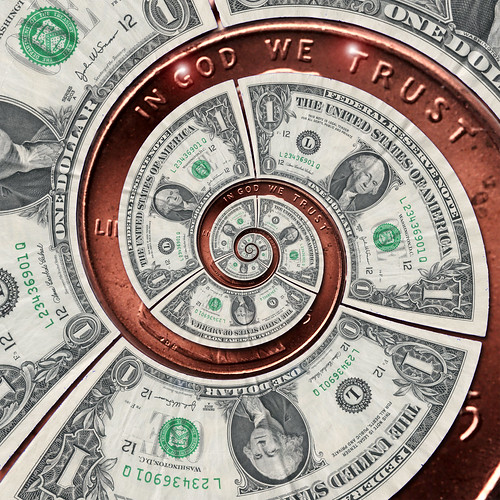
If you want to win, you have to lose. If you want to live, you have to first die. He who seeks to gain his life will lose it for the sake of God.
One definition of a paradox is a truthful statement that appears to contradict itself.
Why would anything that is true appear to contradict itself?
In the book of Ecclesiastes, the wisdom of Solomon continuously uses the phrase "under the sun".
He states that everything under the sun is vanity (the context allows us to interpret this as "meaningless"). When he speaks of everything under the sun, he is speaking of the materialistic worldview, a world where what we see, sense and experience is all that exists.
But there is more to the world than what is "under the sun". Science itself has discovered ancient worlds that have existed before any man ever even observed their light.
Paradoxes only appear to contradict themselves when viewed "under the sun". They are truths that contradict themselves only if one is a materialist. But the belief in God and the supernatural resolves paradoxical truth.
It makes no sense to turn the other cheek in a world under the sun, but it makes absolute sense in a world where there is a creator God who loves and values mankind and cares about how we treat one another.
It makes no sense to say that if you really want to receive, you must give and if you want to lead, you must first serve.
It makes no sense to abstain from lusts if this world that we can touch and feel is the only thing that exists, but it makes absolute sense if there is a God who has given us a deeper purpose of love for those desires.
So I don't see the intelligent advocate for pornography or violence, or other evils as necessarily illogical. I instead question the foundations of their thinking to which they have built their logic.
In a materialist's world, we live and die by the sword. But in God's world, we live and die by faith. This is when paradoxes make sense.
On October 2, 2006, a gunman took hostages and shot 5 school children in a one-room Amish school house. The Amish grandfather of one of the murdered victims, was overheard warning the others to not hate the killer. Many of the Amish attended the funeral of the killer. One representative from the Amish community met with the family of the killer to comfort and extend forgiveness to them. They even set up a charitable fund for the family of the shooter.
Such forgiveness and kindness is a mystery under the sun, but is the logical outworking of a world in which a loving God exists and offers love, compassion and foregiveness to all of us, none of which deserve it.
Science has concluded that everything under the sun is going to come to an end. Our sun has a definite and limited lifespan. Nihilism is the logical conclusion while hope can only be held within the mystery of faith.
To the materialist, this very blog posting is but a mystery.
But a mystery chases us down from thoughtlessness and apathy.
As Socrates once said, "The unexamined life is not worth living."
Are you bold enough to examine your life?
Can you look it straight in the eyes even if that means saying there is no more "I"?
He who seeks to gain his life will lose it, but he who loses it will gain it.




